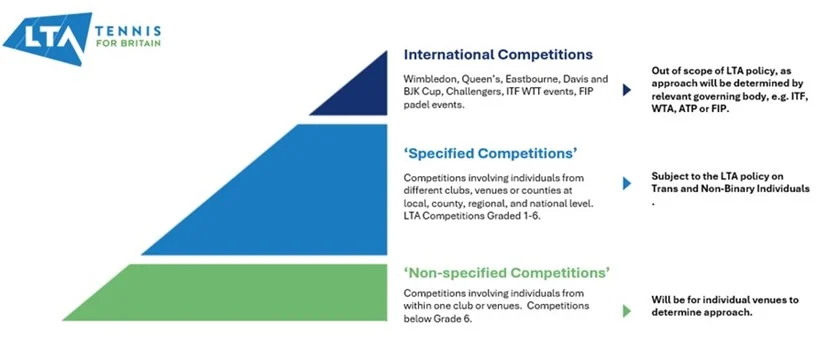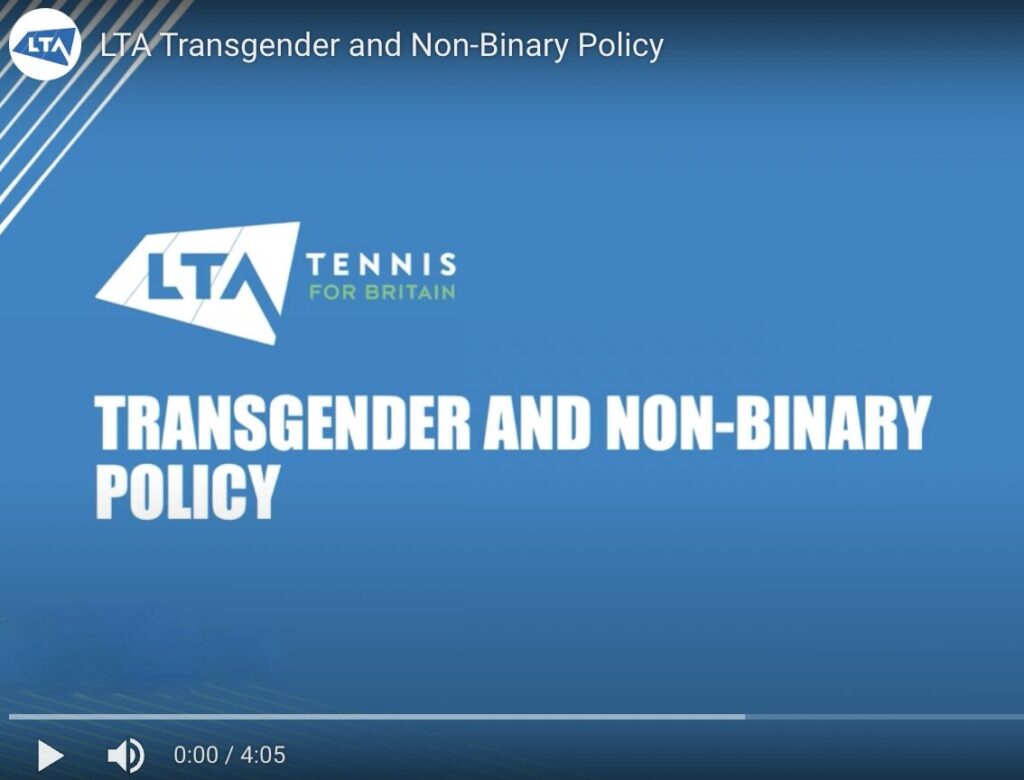LTA bars transgender females from its events
The LTA – padel’s governing body in Great Britain – has announced that from January 25th transgender women will no longer be allowed to play in its female events.
The policy change, which applies to transgender women recorded male at birth, affects both tennis and padel and relates solely to LTA sanctioned events, including Graded 1-6 tournaments. It does not include events organised by padel clubs and other padel organisations and the LTA does not have jurisdiction over international tournaments (ie FIP) held in Britain; rules for these events are determined by the relevant governing body.
An LTA statement said: “As the national governing body (NGB) for tennis and padel the LTA has had to balance two potentially conflicting responsibilities. There is responsibility to ensure competition in our sport is fair and a responsibility to make sure tennis is welcoming and inclusive for everyone.
“In order to do this we have considered the evidence available, in particular taking into account work carried out by the Sports Councils Equality Group, as well as listening to those who are directly affected.
“The policy attempts to balance these two responsibilities appropriately but in the knowledge that different people will reasonably have different views as to where that balance should lie.”
Concerns
In March 2023 The Bandeja broke the story that a group of female players playing an LTA Grade 1 tournament at Stratford Padel Club in London expressed unease to the governing body about the participation of a transgender female, with concerns about physiological advantages of male puberty and that females may exclude themselves from competition if they considered it unfair. One of the players said: “It’s not the person it’s the situation and the as-yet unproven possibility of competitive advantage.”
At the time the LTA said it was reviewing its policy but that it encouraged venues and coaches to take ‘proactive steps that enable everyone to access tennis, have a positive experience and the opportunity to achieve their potential and trans people are no exception to this’, with its policy at that time stating that players should be accepted ‘in the gender they present’.
More recently there was press coverage when a 14-year-old girl was drawn against a transgender female in an LTA tournament.
The LTA’s revised policy clarifies the situation and acknowledges that padel and tennis are ‘gender-affected sports’ and the ‘average man has an advantage when playing against the average woman’. It added: “This includes longer levers with which to reach and hit the ball and increased cardio-vascular capacity means being able to get around the court more easily.
“The current broad consensus, including the conclusion of the review carried out by the Sports Councils Equality Group, is that this advantage is likely to be retained to a significant degree in trans women, making competition potentially unfair,” it added.
The LTA has created two designations of competitions to support the new policy – Specified and Non-Specified, with transgender females disallowed from Specified events:
- Specified competitions will usually be those which are ‘inter’ venue (ie involving individuals from different clubs or counties). Under our competition structure these are Graded 1-6.
- Non-specified competitions will usually be those which are ‘intra’ venue, ie involving players from within one venue (which is everything below Grade 6).
“We are changing our policy to restrict trans women and non-binary individuals assigned male at birth from playing in the women’s category in Specified, inter-venue, competitions,” the LTA said. “These will be competitions ranging from our National Championships through to local county and district leagues, where the purpose is to provide fair competitive opportunities. This policy helps ensure there is a common national standard for all these competitions which is fair
“For non-specified competitions within venues, the purpose is primarily to provide fun, social competition to enable people to feel part of their local tennis community and players will be able to familiarise themselves with the policy within their own venue and hence who they are likely to be playing against. These will be able to be fully inclusive, and the choice will be for local venues to make,” added the LTA. 🎾







